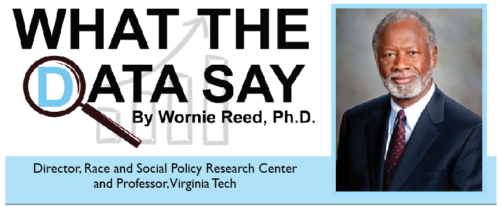National Commentary
Combating Racial Injustice

Last April, the Race and Social Policy Research Center at Virginia Tech held its eighth annual Combating Racial Justice Workshop, “Black Lives Matter: Eliminating Racial Inequalities in Criminal Justice.” At the workshop, Dr. Nazdol Ghandnoosh of the Sentencing Project led discussions about sources and some solutions for racial inequities in the criminal justice system. This month we had a follow-up to the spring session, where we attempted to discuss a bit more deeply relevant issues and best practices.
The Sentencing Project Report described four critical sources of unwarranted racial disparities in criminal justice.
1. Racial Bias. Criminal justice practitioners’ use of discretion is – often unintentionally – influenced by racial bias. Implicit bias affects the work of police officers, prosecutors, judges, and other members of the courtroom workgroup.
2. Disparate Racial Impact. Many so-called race-neutral policies and laws have a disparate racial impact. Practices with disparate racial impact include sentencing laws: crack vs. cocaine sentencing disparity, drug-free school zone enhancements, three-strikes, and other habitual offender laws. They also include police policies such as “stop and frisk” and “broken windows (being very aggressive in policing minor issues).”
By the way, I cannot accept former NYC mayor Michael Bloomberg’s apology for having pushed and praised his unfruitful “stop and frisk” police policies, which stopped nearly 700,000 mostly Black and brown young men each year in the city. It was illegal racial profiling. It was described as such by many people, some even carrying out demonstrations against it. Although the practice found minuscule contraband, astoundingly, Bloomberg argued that yes, it was racial profiling and was necessary.
3. Economic Disadvantages. Low-income defendants across the country are in a never-ending cycle of fines, jail, probation, and debt. Further, nearly several hundred thousand un-convicted Americans sit in jail because they are too poor to pay bail. And studies have shown that this practice is biased against blacks.
4. Lifelong Punishment. Criminal justice policies make socioeconomic inequalities worse by imposing collateral consequences on those with criminal records. A criminal conviction creates a barrier to steady employment, and it also disqualifies them from public assistance and public housing. Moreover, court policies punish the poor.
Here are some best practice solutions:
Solution 1: Efforts to Curb Racial Bias in Use of Discretion. Baltimore and other jurisdictions’ police departments are undergoing implicit bias training. Milwaukee prosecutors have eliminated racial disparities in drug paraphernalia charges through monitoring and accountability.
Solution 2: Modifying Policies with Disparate Racial Impact. Indiana and Connecticut have amended their drug-free school zone sentencing laws (because many low-income and minority people live close to schools and therefore within these zones). New York City curbed its “stop and frisk” policy and scaled back “broken windows” policing. Iowa, Connecticut, and Oregon have passed legislation requiring a racial impact analysis before codifying a new crime or modifying the criminal penalty for an existing offense.
Solution 3: Easing Economic Burdens. New Jersey reformed its bail system to emphasize risk assessment over monetary bail.
Solution 4: Reduce Lifelong Punishment. Twelve states, including Virginia, and 60 cities now “Ban the Box,” removing the question about conviction history from initial job applications for public jobs. Over a dozen states have fully opted out of both the cash assistance and food stamps bans, and 30 others and the District of Columbia have chosen to at least partly opt-out of one ban.
California voters approved Proposition 47 in 2014, which reclassifies several low-level offenses from felonies to misdemeanors and commits annual prison savings to crime prevention efforts.
These are some efforts across the country to reduce disparate racial and economic inequities produced by the criminal justice system. While not numerous and not everywhere, they do point us in the right direction. Concerned citizens are looking at these issues and trying to eliminate them.